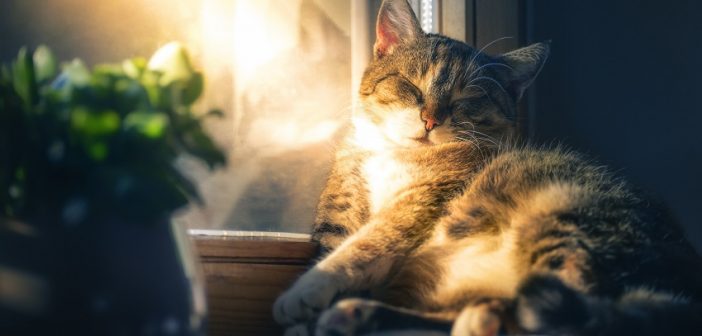Signs of aggression in cats: how to understand that a cat is preparing to attack?
Owners of aggressive cats are familiar with the manifestations of the heavy nature of their pets. The result of aggressive behavior is bitten hands, scratched legs. A person often falls under the hot paw of a four-legged aggressor. Let’s find out what behavior of the cat precedes the attack?
In case of aggression towards an animal or human cat:
- Hiss and growls
- Paw
- Rearing the coat
- Approaching in a tense position with an arched back
- Fall to the ground with a rumbling
There are various reasons behind the aggressive behavior of a sexually mature cat, for example, a lack of experience in communicating with relatives or an unsatisfied sexual desire. To figure out how to make your cat less aggressive, you need to understand why the animal demonstrates it.
The causes of aggression
Unrealized hunting instinct
The hunter instinct is inherent in every cat at the genetic level. It is a strong instinct that helped our pets’ ancestors to hunt and survive in their natural environment. It persists and manifests itself with the same force in a city apartment. And even if the kitten’s ancestors have never hunted in their life, the baby will still be interested in flies, fishing rods, and balls.
Cats learn social skills by playing with their siblings. Living for 3-4 months next to them, the kitten learns the necessary “etiquette” of behavior: if you bite a fellow too hard during the game, then you will be given a sound aimed at stopping this behavior.
If a kitten is weaned from its mother early, it does not have time to learn valuable skills and often shows aggressive behavior towards people and animals.
Self-defense
A cat, caught in a situation that requires self-defense, tries to avoid conflict and hide. If this is not possible, the animal actively defends itself by showing aggression. The cat hisses, yells, howls, hits with his paw, especially when it feels that the forces with the enemy are approximately equal.
Attacking the enemy, the cat grabs it with its front paws and tries to bite while scratching and pushing with its hind paws. And even if a stronger opponent attacks the cat, the animal will defend itself fiercely and aggressively.
Aggression due to fear can be genetically embedded in a pet, or it can develop due to life circumstances: a hard fate while living on the street or because of the owners’ mistreatment.
Find out what is bothering your cat. Sometimes the reasons for concern are not apparent to humans but significant to the cat. For example, moving to a new place, a new person or animal in the house, staying in some new places.
Illness and pain
Aggression in cats with illness occurs due to physiological disease processes in the body. The mood of a cat is spoiled when it is in pain. Therefore, if necessary to carry out medical procedures, consider in advance the means of protection against the aggressor.
Sometimes a cat’s aggression is the result of feeling unwell. If the owner is faced with the aggression of his cat, it is necessary, among other things, to consult with the veterinarian about the state of her health. The medical causes of aggression in cats can range from hormonal imbalances to pain. Aggression by a cat for no apparent reason, like other examples of strange cat behavior, is a reason to wonder if everything is in order with his health. Do not hesitate to visit the veterinary clinic if you notice something like this.
Discomfort due to chronic stress
Whether it is the lack of good contact in the relationship with the owner (perhaps the cat does not have enough attention), improper behavior (owner’s aggression, punishment, screaming), someone’s encroachment on the cat’s personal space (for example, dogs or dominant cats can take away food or take the cat’s place for rest), an unfavorable environment (noise, constant changes, pungent odors).
Socialization gaps
We all come from childhood. That’s the same story with cats. If a cat is separated from its mother too early, it may develop behavioral problems as an adult. Cats and cats, as a rule, love to play, realizing hunting behavior through the game. However, a cat that has not been taught to distinguish one from the other by a kitten can play with people and others too aggressively, not at all wanting to hurt someone. Often the owners of such cats complain of sudden attacks from around the corner and deep scratches from excessively tenacious claws.
How to solve the problem
Make it clear to the four-legged that playing with the direct contact of the cat’s claws and teeth with human skin is prohibited. If your pet plays too much and begins to break the rules, limit communication with it: stop touching the animal until it calms down. Do not play with the kitten with your hands or feet. Games are allowed only with toys or laser pointers.
The tactics of your actions will directly depend on the factors provoking the cat’s aggression. The medical problem is resolved, or at least cured by treatment. Frequently, some health issues are related to lack of some elements, which food may contain. Vet advice from Dr. Chyrle Bonk – “All breeds require vitamins to function correctly, but older cats may need extra supplementation to help ward off health conditions that come with age.” Proper nutrients are crucial to the development and general well-being of pets, especially cats. When faced with unmotivated cat aggression, seek help from a veterinary clinic.
As long as negative experiences outweigh positive ones, the problem will persist. The cat survived a traumatic situation, which left a mark on its attitude towards people and became the cause of aggressiveness towards people, relatives, and other animals. Fortunately, this problem is solvable.
- Be patient.
- At first, it is worth giving the animal a separate small space where the cat will feel safe.
- Accustom the cat to your company: at least once a day, sit near the place where the cat is hiding, and calmly go about your business without violating the boundaries of the territory.
- Talk with the cat affectionately.
- Play. It’s worth starting with a distance game using a catfishing rod or a simple string with a bow. If the cat has not yet made contact, do not despair – it just needs time.
- Offer a treat: first, leave it close to the cat, after a while, try offering a treat from your hand. So the cat will associate your company with pleasant experiences.
- Under challenging cases, you can always contact a specialist. Even if you live far from big cities and do not know such professionals, the age of high technology allows you to consult one via the Internet. Of course, a personal meeting will give the specialist more information, but most of the problems can be solved through a video call.
Aggressive cats are a problem for families with small children. And sometimes it is a consequence of contact with them. It is no secret that a child can hurt a cat by grabbing or pinching the tail. For this reason, we do not recommend leaving small children with the cat. Remember that you should not be aggressive by yelling or punishing your cat.
As we have already found out, the reasons are different, but the solution is almost universal. Create favorable conditions for the cat: personal space, the ability to avoid unpleasant sensations, a variety of toys for leisure, comfortable communication with the owner, bowls, and a litter box should be easily accessible.
Gaps in socialization lead to malfunctions in play and hunting behavior. Play with your cat using toys that simulate prey. The cat must learn that arms, legs, and other parts of the body are not suitable objects for the attack, even for game interaction.
Important! Never act like a victim. Running away, twitching, and succumbing to fear, you will only provoke the cat to take more decisive actions. For a pet, this reaction is natural since the cat, although domestic, is still a predator. And the owner must reckon with this fact.




keep away from unsavory sensations, an assortment of toys for relaxation, agreeable correspondence with the proprietor, bowls, and a litter box ought to be effectively open.
Source: rabbit meat buyers
Hi! It’s a really interesting topic. I can teach you how to make money online and you will forget about your poor life. Please, go to my website 😉